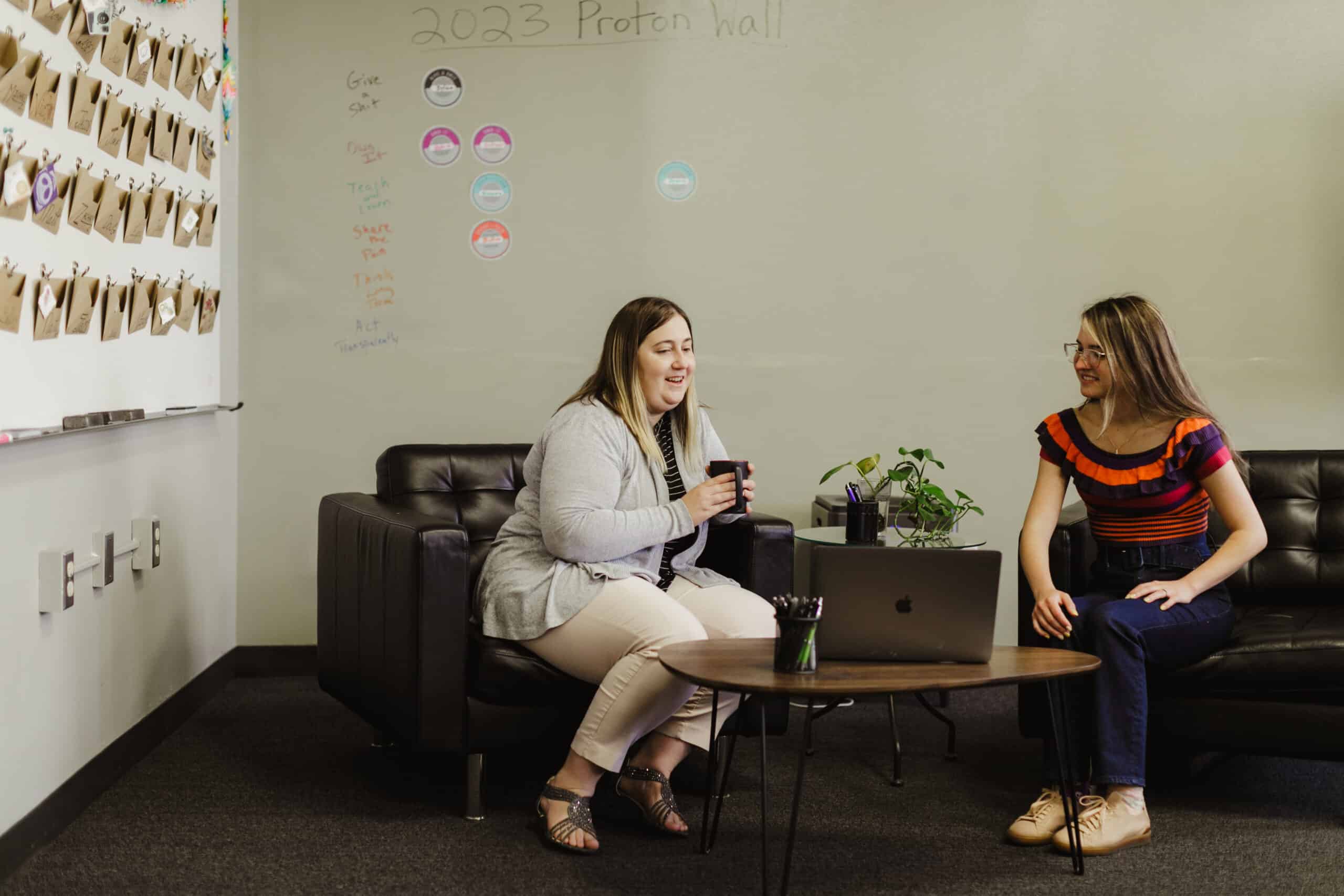Recently at Atomic Object, we’ve had many conversations about knowledge management. Knowledge management is often seen as critical for service firms to help them gain efficiency and standard outcomes. I want to outline the strategic challenges to knowledge management that I see from my perspective.
To begin, the simple definition of knowledge management as a starting point comes from
Tom Davenport. “Knowledge Management is the process of capturing, distributing, and effectively using knowledge.”
Challenge 1: Project-specific Knowledge vs. Generalizable Knowledge
One of the initial challenges I see with managing knowledge at Atomic Object is discerning between project-specific knowledge vs. knowledge and learning that can be generalized and applied to other projects. If we misjudge what is specific to a project and assume it can be applied to other projects, there are risks. For instance, we risk overgeneralizing the tools we have and not thinking critically about new situations we encounter. However, we will waste time and resources reinventing the wheel by making the opposite mistake and assuming each situation is perfectly unique.
Most often, I see this in project status updates, reports, and artifacts. Teams could all use a standard template for those documents but are re-creating them for each project. The balance lies in the middle by understanding what is unique and specific to a project and what can be standardized and used repeatedly on most projects. I also see the standardization as an opportunity to reinforce our branding and the experience of working with Atomic by creating a reproducible experience.
Challenge 2: Adapting to Rapid Technological Changes
Software technology is changing fast, and keeping up with it poses a significant challenge to effective knowledge management. At Atomic Object, we keep ourselves at the forefront of technology advancements. However, this also means that the tools, languages, and frameworks we use today may become obsolete tomorrow. This presents a challenge in maintaining a repository of knowledge that stays relevant in the face of constant innovation. We seek to encourage our consultants to stay current on new technologies through
professional development every year. For most people, this means attending a conference about a topic that interests them.
Embracing a culture of continuous learning and encouraging team members to explore new technologies ensures that our knowledge management practices remain adaptable and responsive to the fast-paced tech environment.
Challenge 3: The Unique Nature of Each Custom Software Solution
Another challenge in knowledge management stems from the unique nature of each custom software solution we develop. Unlike standardized products, custom solutions are tailored to meet specific client needs. This leads to diverse projects with diverse requirements and solutions. This diversity makes it challenging to create a one-size-fits-all approach to knowledge management.
Navigating this challenge involves recognizing the nuances of each project and adopting a flexible knowledge management strategy. While certain aspects may be project-specific, identifying commonalities and recurring patterns is essential. Developing a framework that allows for customization while leveraging generalized knowledge across projects is key. This can enhance efficiency and promote a consistent, high-quality output while keeping each project and solution unique.
Challenge 4: Standardization vs. Innovation and Creativity
While standardization is crucial for efficiency and consistency, it also risks reducing innovation and creative problem-solving. I believe a lot of our team thrives on tricky problems and finding creative inventive solutions. Overemphasizing standardization can inadvertently limit the creative thinking that sets us apart.
To strike the right balance, we must foster a culture that values both a toolbox of pre-created ideas, templates, and patterns, and
innovation when needed. Encouraging open communication and collaboration enables team members to contribute fresh ideas while adhering to established processes. Recognize and learn to see that certain aspects of a project benefit from standardization, while others demand creative thinking. That will allow us to maintain the best of both worlds between efficiency and creativity.
Navigating the Challenges of Knowledge Management
In conclusion, navigating the strategic challenges of knowledge management at Atomic Object requires a nuanced approach. Balancing project-specific knowledge with generalizable insights, adapting to rapid technological changes, acknowledging the uniqueness of each custom solution, and finding the sweet spot between standardization and innovation are integral components of a knowledge management strategy. By addressing these challenges thoughtfully, we can ensure that our collective knowledge remains a valuable asset, which is crucial for a services firm like Atomic Object.

